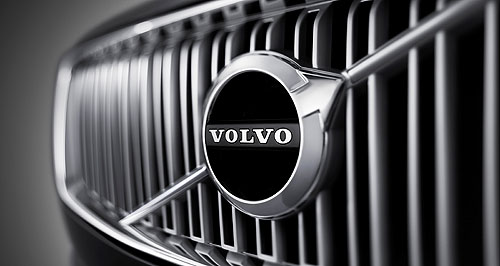News - VolvoVolvo better off under GeelyFresh start: Geely’s ownership of Volvo has given Swedish car-maker the freedom to develop new models without the restrictions it had when it was owned by Ford Motor Company. New Chinese owner Geely gives Volvo freedom and autonomy23 Feb 2015 ACCORDING to company executives, under Chinese ownership Volvo has more autonomy to develop and produce new products than it did when it was part of Ford’s global empire. China’s Zhejiang Geely Holding Group – the parent company of the Geely automotive brand – purchased Volvo in 2010 for US$1.8 billion ($A2.3bn) from Ford Motor Company, where it fell under the US car-maker’s Premier Automotive Group that was also home to Jaguar, Land Rover and Aston Martin. Volvo Cars Group product manager Lars Lagstrom told Australian reporters at the first media drive of the new XC90 in Spain last week that Volvo was hamstrung when it came to independent vehicle development under Ford ownership. “We were a bit forced to use a lot of components within the family, for instance the engines, the chassis set-up, the steering,” he said. “To make sure now we are independent, we don’t want to pay any royalties to other companies. We want to make sure all our money invested works for ourselves and that’s why we don’t buy engines. We develop new engines on our own and others are allowed to perhaps buy engines from us.” Asked if not having the backing of a company the size of Ford hinders development, Mr Lagstrom said the opposite was the case. “The big scale with other companies, we have had restraints, I would say, all the time. Even though they had big muscles – they bought a lot of companies that were not delivering as expected. They had Jaguar, Land Rover, Volvo. They put a lot of pressure to deliver.” Mr Lagstrom added that using underpinnings from a parent company can impact the customer’s perception of a brand, particularly one that has a long history. “Jaguar is Jaguar if you have heritage and components from Jaguar. Volvo is a Volvo if you have the components and can build it the way a Volvo should be. “If you do step away from that, it’s not a complete Volvo, and then you are not trustworthy with customers and customers don’t want that car in the same way if it’s truly a Volvo.” Mr Lagstrom said Geely has given Volvo the freedom to develop an entirely new line-up, but added that it was more than just financial handouts from the Chinese company. “We have ownership that gives us free hands but you must deserve and earn all the money you use for development. You don’t get any subsidies or money because you are lazy and not doing your job. You need to do it yourself.” Volvo Cars Group chief designer interiors Tisha Johnson highlighted the freedom the company has thanks to its new owner. “We are more independent than we have ever been,” she said. “It feels as if we have this entrepreneurial environment where we can act on things very quickly. For instance, when we were owned by Ford, there was such bureaucracy around getting something through that it really inhibited our progress. “We have a different vision and a different philosophy around what our cars are and what they should be than say, an owner, like an American car company such as Ford. Now we are owned by a holding company so Volvo is more its own entity.” Ms Johnson described the freedom the brand is experiencing as being “the best thing”, and added that it was something she could see in her colleagues. “You can really feel the inertia and the energy within the brand. So anytime you are interacting with people, you can really see there is an optimism and a belief that we can do what we want to do.” Ford, which had owned Volvo since 2000, offloaded the Swedish car-maker following a global financial crisis restructure that also saw the Blue Oval sell the three British brands and effectively kill its Premier Automotive Group division. Since then, Geely has invested heavily in rebuilding the Swedish brand that suffered financial losses during the GFC, with Volvo slowly moving away from Ford-based platforms and powertrains to in-house architecture and engines, some of which will be shared with its Chinese parent. The second-generation XC90 SUV, arriving in Australian showrooms in August, is the first new product since the start of Geely ownership that does not share components or underpinnings with a Ford model, and it also represents something of a re-launch for the brand globally.  Read more18th of February 2015  First drive: Volvo hits reset button with XC90Second-gen XC90 the first salvo in Volvo’s rebirth and new-model onslaught22nd of February 2013  Volvo, Geely co-developing new compact platformStandalone facility in Sweden to develop new compact platform for Volvo and Geely4th of December 2012  Volvo’s cash splash in SwedenSignificant $10.6 billion investment by Volvo for future engines, platforms by 2015 |
Click to shareVolvo articlesResearch Volvo Motor industry news |
















Facebook Twitter Instagram